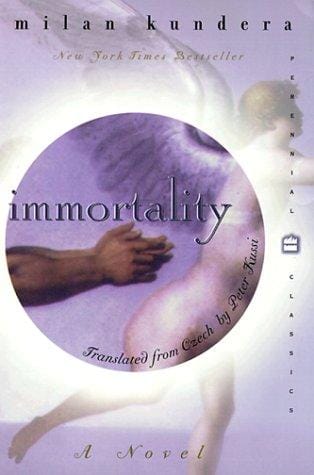Shadow Kiss: Exploring the Third Installment of Richelle Mead’s Vampire Academy
Shadow Kiss, book three of Richelle Mead’s Vampire Academy, blends high-stakes action, forbidden romance, and deep themes that elevate it above typical YA paranormal fare.

Introduction to Shadow Kiss
Shadow Kiss, the third novel in Richelle Mead’s bestselling Vampire Academy series, catapulted the saga from an engaging young-adult fantasy into a full-fledged phenomenon that blended paranormal intrigue, academy politics, and emotionally charged romance. Published in 2008, the book picks up only weeks after the life-altering events of Frostbite and follows Dhampir guardian-in-training Rose Hathaway as she faces new threats, blurred loyalties, and the haunting possibility that destiny may already be written in blood. For readers who crave a fast-paced narrative anchored by complex relationships, Shadow Kiss remains a landmark title that redefined modern vampire fiction.
Plot Overview: A Turning Point for the Series
The story opens with the Moroi Academy still reeling from the Strigoi attacks that shattered the winter ski trip. Rose, wrestling with grief over the death of her friend Mason, is also coping with the psychological fallout of post-traumatic stress and the mysterious visions of ghosts that now follow her around campus. When she and her best friend, Moroi princess Lissa Dragomir, are assigned to the school’s six-week field experience designed to test novice guardians in real-world scenarios, Rose expects routine drills. Instead she is assigned to guard Christian Ozera, Lissa’s boyfriend, putting early strain on her bond with Lissa while amplifying her reputation for insubordination.
Matters grow more dire when inexplicable Strigoi sightings are reported near campus, an impossibility given the Academy’s magical wards. Rose’s ghostly visions intensify, hinting at a conspiracy and foreshadowing tragedy. Meanwhile, the forbidden chemistry between Rose and her mentor, Dimitri Belikov, burns hotter than ever, complicated by Moroi politics, age differences, and the iron-clad guardian code. The narrative crescendos during a royal visit, where an unexpected Strigoi ambush exposes vulnerabilities in the Academy’s defenses and in Rose’s own convictions about duty and love.
Character Development: From Novice to Warrior
Shadow Kiss showcases Rose’s evolution from brash novice to a warrior forced to confront the heaviest of sacrifices. Her trademark sarcasm remains intact, but Mead deepens Rose’s emotional spectrum, depicting moments of crippling guilt, self-doubt, and burgeoning maturity. Dimitri, usually the stoic paragon of guardian ideals, reveals layers of tenderness and inner conflict as he struggles with his growing affection for Rose and the obligations that bind him. Lissa continues to explore her Spirit magic, a rare and unstable element that heightens her empathy but also exposes her to mental fragility. Supporting characters—Adrian Ivashkov with his devil-may-care charm, Christian’s fierce loyalty masked by cynicism—round out a cast where every choice carries weighty consequences.
Themes of Love, Loss, and Free Will
At its core, Shadow Kiss interrogates the price of love and the limits of free will in a world governed by rigid hierarchies. Rose and Dimitri’s relationship examines whether personal happiness can coexist with professional duty, especially when that duty demands self-sacrifice. The recurring presence of ghosts symbolizes unresolved trauma and the notion that the past, no matter how deeply buried, influences the future. Mead also explores systemic inequality between Moroi royals, non-royal Moroi, Dhampirs, and humans, prompting readers to question who benefits from tradition and who endures its cost. Loss permeates the narrative, reminding characters—and readers—that power and immortality offer no immunity from heartbreak.
Symbolism and World-Building Details
The psychic bond between Rose and Lissa serves as both plot device and symbol of interdependence. Their link reinforces the theme that strength often arises from unity rather than individual prowess. The ward stones guarding the Academy represent perceived safety; when Strigoi breach them, Mead underscores the dangers of complacency. Even the snowy Montana setting contrasts the warmth of budding love with the chill of looming danger, heightening the novel’s atmospheric tension.
Why Shadow Kiss Stands Out in YA Paranormal Fiction
While vampire stories were ubiquitous in the late 2000s, Shadow Kiss differentiated itself through layered politics, morally gray choices, and a protagonist whose flaws make her relatable. Mead’s crisp dialogue keeps the pace brisk, yet she never sacrifices emotional depth. The novel’s shocking final act—without delving into spoilers—reshapes the series’ trajectory and cements the stakes as life-or-death, leaving readers eager for book four, Blood Promise. For educators and librarians, Shadow Kiss offers fertile ground for discussions on consent, PTSD, and systems of oppression, making it more than escapist fare.
Final Thoughts: The Lasting Impact of Shadow Kiss
Fifteen years after its release, Shadow Kiss still resonates with new generations of readers discovering the Vampire Academy universe. Its combination of high-octane action, slow-burn romance, and thoughtful commentary on power structures ensures it remains a staple of young-adult shelves. Whether you are revisiting the series or diving in for the first time, Shadow Kiss delivers an unforgettable blend of adrenaline and heartache that will leave you contemplating the fine line between destiny and choice long after the final page is turned.



